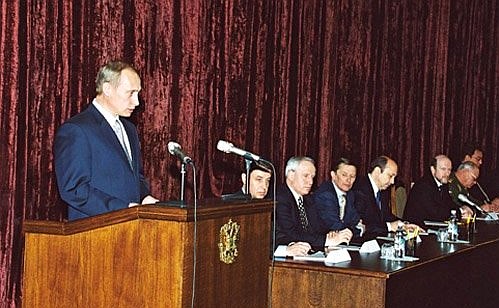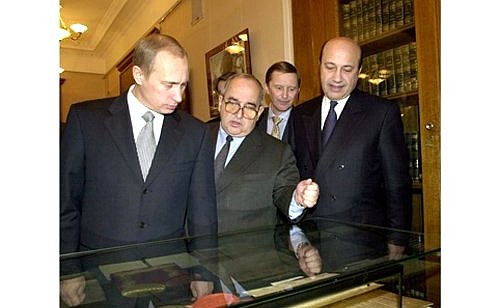Mr Putin highlighted as Russia’s top foreign political priority the creation of a beneficial international situation that would make it possible to focus necessary efforts and resources on tackling social and economic problems.
In this context, Mr Putin pinpointed the principal objectives of Russian diplomacy—guaranteeing strategic stability and security, active cooperation with Russia’s principal foreign political partners in the bilateral format and in international organisations, co-ordinated efforts against transnational crime, terrorism and extremism, promoting Russian manufacturers in foreign markets, and improving Russia’s positive public image worldwide.
Mr Putin expressed his hope for productive partnership with the Administration of US President George W. Bush on disarmament and the preservation of the 1972 ABM Treaty.
As he stressed the importance of closer links with European countries, the President said that Russia did not intend to join the European Union just now, but it was interested in strengthening and expanding its interaction with European integration offices.
He emphasised that Russia considered it wrong to enlarge NATO, and was openly declaring its principled disapproval of the process in its dialogue with alliance members. Mr Putin acknowledged that normalisation of Russian-NATO relations after the Balkan events was not an easy job. He said, however, that if the partners proceeded in their contacts from frankness, openness and constructive cooperation, they would honourably contribute to European stability and Russian security.

